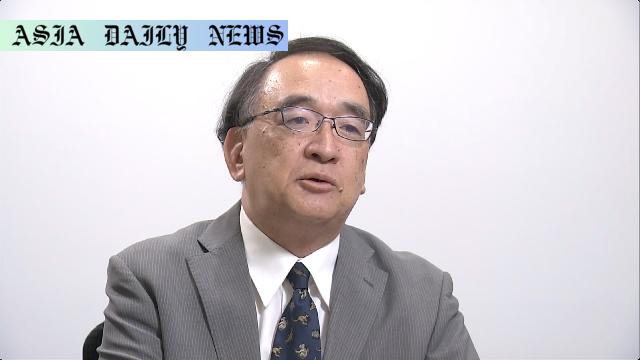Tariff hikes may affect US economy and financial markets, Japanese economist cautions.
US President Donald Trump’s tariff remark likely a threat due to unmet trade expectations.
Tariff hikes could damage the US economy, causing criticism and market disruptions.
Japan’s approach emphasizes negotiation, but concessions may not materialize soon.
Economist predicts US might independently lower tariffs within months.

Understanding Trump’s Tariff Threat: Context & Implications
The recent remarks by US President Donald Trump suggesting the possibility of escalating tariffs on Japan have not gone unchecked. Experts, including Kiuchi Takahide, executive economist at the Nomura Research Institute, believe this aggressive stance is more a manifestation of frustration than a concrete policy. Trump’s dissatisfaction arises from Japan’s relatively limited concessions during ongoing trade negotiations, undermining what the US likely envisioned as an ideal partnership for setting precedence in global trade deals.
Japan, as one of America’s significant trade partners, has consistently resisted demands for substantial trade-offs, which has irked the current US administration. Consequently, the notion of implementing harsher tariffs often surfaces during diplomatic stalemates. However, experts like Kiuchi argue that such threats lack substantial grounding, given the potential repercussions on both the US economy and its political landscape. For the US, such an action could lead to heightened import prices, directly impacting summer costs and likely causing polarizing domestic criticism.
Economic and Political Fallout of Tariff Escalation
Kiuchi’s analysis highlights the potential economic and political risks tied to an actual implementation of these tariffs. With prices surging on imported goods, American consumers and businesses may experience immediate financial strain, reverberating through broader economic markets. This spike in costs would likely amplify public and political scrutiny of Trump’s trade strategies, eroding policy credibility and instigating dissent within financial circles.
Moreover, the global ramifications of such a policy cannot be ignored. Increased tariffs would compromise international market stability, directly impacting investment confidence in US-Japan trade relationships. Industry experts assert that Trump’s repeated usage of tariff threats undermines long-term economic strategies, weakening allied partnerships and exerting unnecessary pressure on global economic equilibriums.
Japan’s Negotiation Strategy: A Balancing Act
From Japan’s perspective, the consistent diplomatic efforts, evidenced by repeated delegations traveling to the US, reflect a desire to foster mutual understanding and reach reasonable agreements. However, experts remain skeptical about these efforts yielding immediate results, citing that Tokyo appears cautious in retaining its position on critical trade-related issues.
Observers are pointing to the strategic patience exhibited by Japanese officials amidst rising contention. Despite repeated interventions, substantive concessions are not forthcoming, adhering to a pragmatic approach over reactive compromise. Kiuchi posits that leveraging this patience as a negotiation tool could position Japan at an advantage should Washington decide to reevaluate current trade strategies in the coming months.
The Road Ahead: Possible Outcomes
Looking ahead, Kiuchi speculates that the prolonged deadlock could result in a significant pivot within the US tariff policy. This speculation stems from the inherent limitations of extended trade conflicts, often leading to impacts that necessitate policy reversals. Notably, there exists a possibility of the US unilaterally reducing tariffs within the next few months, especially if economic metrics suggest sustained domestic impact.
This anticipated shift places Japan in a complex position—while holding ground now might appear advantageous, it could also result in missed opportunities to establish favorable terms amidst uncertainty. The decision to preemptively concede or maintain steadfast resistance becomes a crucial determinant in the trajectory of US-Japan economic interactions in 2023 and beyond.
Conclusion
In conclusion, the emerging US-Japan tariff conflict underscores broader questions about international trade policy and economic diplomacy. With economic and geopolitical stakes running high, the current impasse is indicative of evolving challenges and opportunities. Stakeholders from both spheres are closely watching how these dynamics unfold, reflecting the complex interplay between economic pragmatism and political posturing in an increasingly interconnected global economy.



Commentary
The Tariff Tightrope: Economic Evaluations and Political Implications
The ongoing tariff dispute between the United States and Japan highlights a broader trend in global trade negotiations—where political strategy often takes precedence over economic logic. President Trump’s frustration with Japan’s negotiation stance appears rooted in unmet expectations, raising questions about the underlying goals of his trade policies. By targeting Japan, the US administration seemingly aims to set a stern example for other nations; however, this approach risks alienating one of its key allies.
Economic Sustainability vs. Political Posturing
An unavoidable concern tied to heightened tariffs is their domestic economic impact within the US. While they project strength on a diplomatic front, the economic reality is far bleaker. American businesses and households bear the brunt of higher costs, which could erode popular support for such measures. For Japan, this scenario offers some breathing room, as its calculated response positions it as the cooler head in this escalating conflict, ultimately preserving its economic stability.
Strategic Patience: Japan’s Approach
Japan’s commitment to iterative diplomacy illustrates an admirable restraint in navigating tense trade negotiations. This calculated stance suggests a willingness to engage without succumbing to undue external pressure, a hallmark of sound economic diplomacy. By adopting a patient yet firm approach, Japan positions itself as a model of strategic pragmatism.
Overall, this tariff conflict addresses fundamental questions about the global economic order, the resilience of trade partnerships, and the long-term implications of aggressive policy shifts. It remains to be seen whether the US and Japan can reconcile divergent priorities, but this chapter underscores the importance of balanced, multilateral engagement in resolving disputes.